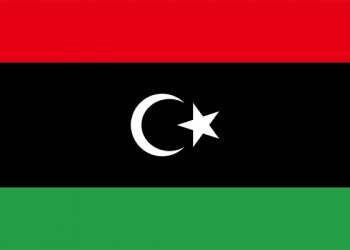Since Russia launched its attack, nearly 123,000 people have come to Germany from Ukraine, according to Interior Ministry
BERLIN
Thousands of people took once again to the streets in downtown Berlin on Sunday, rallying against Russia’s war in Ukraine.
Young and old were among the demonstrators, as well as families with children.
Some held balloons in blue and yellow, the colors of the Ukrainian flag, while others had peace signs in their hands.
Some of the protesters were carrying self-written banners that read “Stop War”, “Peace”, “Where is the vaccination against war” as well as insults against Russian President Vladimir Putin.
Hundreds of police officers were on duty while the mood at the demonstration was peaceful.
An alliance of organizers made up of trade unions, churches, environmental protection initiatives, and peace groups had again called for the protests across Germany.
The slogan of the demonstration was: “Stop the war. Peace and solidarity for the people of Ukraine.”
More anti-war demonstrations were also reported from Hamburg, Frankfurt, Stuttgart, and Leipzig.
On Feb. 27, three days after Russia launched a war on Ukraine, hundreds of thousands of people demonstrated in Berlin and several other major German cities.
Germany has been the scene of mass anti-war protests in recent weeks in the wake of the war.
Tens of thousands of war refugees, mostly women and children, from Ukraine have arrived in Germany.
Since the Russian attack began on February 24, 122,837 people have come to Germany from Ukraine, the Interior Ministry announced on Saturday.
However, since there are no fixed border controls at Germany’s borders, the number of war refugees entering the country could actually be significantly higher.
According to the UN, more than 2.5 million people from Ukraine have already sought refuge abroad. Most initially stayed in neighboring countries.
Berlin reacted to the Russian war in Ukraine by drastically increasing its military spending.
Germany is committing €100 billion to a fund for its military and will raise its defense spending above 2% of its gross domestic product.







